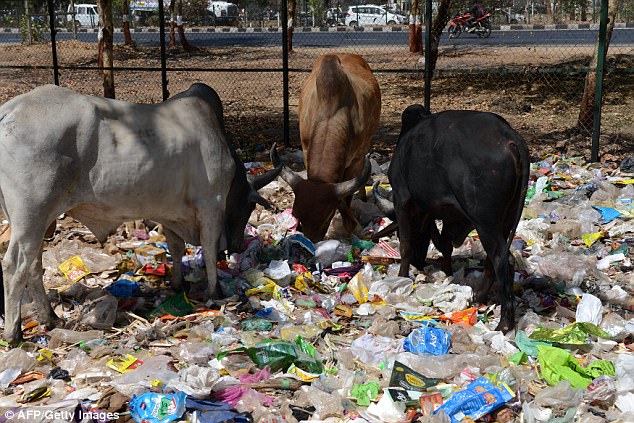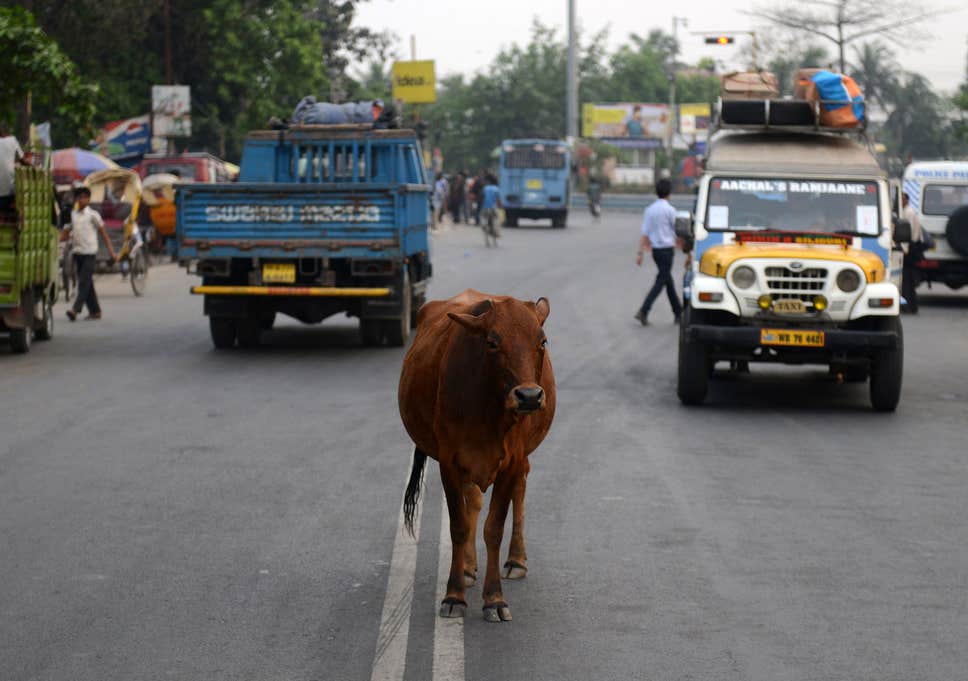In the previous article on veganism I’ve already mentioned that animals do die because of veganism and that receiving vitamins through supplements may not be healthy at all.
I’ve also mentioned that some vegans become very close-minded and aggressive, hating humans who eat meat, yet thinking themselves very holy just because they love animals.
But there are other issues that I have with veganism, which I will discuss in this post. And this is in no way a personal attack on veganism; I have nothing personal against it nor against vegans some of whom are so identified with this movement that they perceive any disagreeing opinion as an attack on their person.
I simply see a trend that’s not healthy and I must speak about it.
Listen to “Veganism – a Blessing or a Curse? Part 2” on Spreaker.
Malnourished vegan appearance
The most obvious issue is the appearance of vegans. It has become a classic now. Vegans look pale and malnourished. Usually they have dark circles under eyes, falling hair and they suffer from premature ageing.
You can watch this video series (I’ve embedded only the first video) about how YouTube vegan vloggers looked before and after they started their vegan journeys. In many of these cases not only physical but mental deterioration is evident.
I don’t necessarily agree that the decline seen in this series can only be attributed to veganism. Some of the people featured, such as John St. Julien (I don’t remember which video features him), has many illnesses.
But I think that the reason he has many illnesses is because his immune system is low – veganism purifies but doesn’t strengthen.
Usually people who start their journey of veganism begin creating videos out of the excitement of how fast their health improved. But later their health declines, because, as I’ve already mentioned, veganism is for purification and not strengthening.
So at this stage those who are honest acknowledge their mistake and stop being vegan. But those who value their public face more than truth continue being vegan despite of the deteriorating health, or some secretly eat meat or consume dairy but call themselves vegans anyway, like this lady who finally came out in the open:
There should be balance. If the body is toxic without getting any way to detox, of course it will become sick. But if it’s being constantly purified without any nourishment, it will fall sick as well.
And for me it’s so sad to see that those who experience serious health problems (some nearly die) and come out in the open to explain why vegan diets are unsustainable are publicly shamed by those who still promote veganism.
It’s so immature. This is one of the features of a cult (when people shame others for quitting identifying with the cult).
Premature ageing
Vegans age much faster – you can again see the example of that in the collection of vegan cases in the video above (you may choose to watch the whole series). Because they receive no nourishment, the body gets weakened and the ageing process speeds up.
All long-term vegans must be painfully aware of this fact. But for some sticking to ideology is more important than facing the facts.
Veganism strongly smells of a cult – people are so invested in this dogma that they can even get violent when their beliefs are challenged.
Although I was only vegan for a short time and quit because I saw fast worsening of my health, I was vegetarian for many years. I did not eat meat for about twelve or so years I guess.
But I’m no longer a twenty-something. I’m 33 now. And what I’ve noticed is the gradual decline in the quality of my muscles, hair and skin. I believe that I was sustained by my healthy genes; but with age you can no longer rely on the good genes given by your parents; eventually where you live, what you eat and other daily habits determine how you look.
What happened when I started eating meat
So around a month ago I started eating good-quality fish and meat in small amounts and I’m already noticing a huge improvement in my energy levels, muscle tone and complexion. My skin looks more youthful, my hair shines more, and the body looks much more toned.
Also, I eat fewer sweets now because my body gets enough energy from meat fat. This caused my stomach to go totally flat, and my energy stays very consistent till late in the evening.
What also happened is that there’s much less irritation – vegans as well as vegetarians can be very irritable because nerves aren’t “insulated”, so to speak. I spiritually feel this to be the case, but I have no medical explanation of it as I’m not a doctor.
People who know me also say that I look more youthful now. So this is all thanks to my changed eating habits.
However, I don’t simply eat any meat. I make sure that the meat that I eat is organic and as fresh as possible. In India this is easy – I live near the ocean so I can enjoy freshly caught fish.
However, since I’ve left India now and will be heading to Lithuania after staying in the UK, I will have to pay much more attention to the quality of meat. I’m not ruling out the possibility of having my own lake (on my land) and having fish there. I also plan to grow chickens.
The reason meat-eaters have bad health
The reason meat-eaters suffer from bad health is because they are indiscriminate about the quality of meat they eat. They also eat too much of it.
Store meat is infused with all sorts of toxic things like antibiotics and growth hormones so it’s best to stay away from such produce. That’s why having your own mini-farm or buying only organic makes much more sense.
So instead of lots of cheap meat people should ideally start buying smaller quantities of organic meat. The cost would be the same and they would avoid many health dangers.
Veganism agenda?
The most well known organization behind veganism is probably PETA. If you google “The truth behind PETA” you will find out another side of this seemingly animal-loving organisation.
What I find is that all these large companies seemingly supporting veganism out of love for animals really do so for money. There’s money in fruits, veggies and supplements.
If large companies are involved in selling vegetables, it’s in their interests to tempt people to consume that, and if they’re involved in selling meat they’re going to advertise the benefits of meat-eating.
It really is all about money so people should make sure that they are inspired to start some diet not because of some emotional promotional video (be it in the form of a movie or not) but because they researched, thought it out, weighed both sides and decided in favor of it.
Large-scale commercial farming is unsustainable
Topsoil is depleted whether you commercially grow animals or monocrops. So the way to save nature is not to go vegan but return to more natural ways of living.
In the past people always ate animals yet there wasn’t such imbalance in nature. That’s because they ate what they needed, and their greed did not encourage them to have massive fields sprayed with poison to increase profits.
So it’s not true that once people go vegan, we will save the world. It’s about supporting small-scale local farmers or having your own sustainable mini-farms that can heal the damage already done.
So there’s a huge responsibility here: unless you’re sourcing your vegan products specifically from organic, “no-dig” systems, you are actively participating in the destruction of soil biota, promoting a system that deprives other species, including small mammals, birds and reptiles, of the conditions for life, and significantly contributing to climate change.
The Guardian
Unless you can afford to buy your fruits and veggies from specific organic farms which focus on restoring topsoil and biodiversity, by simply being vegan you don’t contribute to helping nature restore itself.
The following quote is also something to consider, and this comes from a farmer who revived abused, almost biologically dead land and restored original biodiversity in twenty years through organic farming and allowing animals to freely roam.
Rather than being seduced by exhortations to eat more products made from industrially grown soya, maize and grains, we should be encouraging sustainable forms of meat and dairy production based on traditional rotational systems, permanent pasture and conservation grazing. We should, at the very least, question the ethics of driving up demand for crops that require high inputs of fertiliser, fungicides, pesticides and herbicides, while demonising sustainable forms of livestock farming that can restore soils and biodiversity, and sequester carbon.
The Guardian
Of course it would be best to live in the world where nobody dies to become the food source of someone else. But this world doesn’t work this way. Even plants are alive. So the best we can do is to work with nature and not against it.
What will happen to animals if we all go vegan?
If we stop eating meat many kinds of animals would no longer be kept by farmers, as most farmers don’t run charities. The reason most keep animals is because it’s profitable. The food that they consume, their care and place to sleep all cost money.
What would happen to animals if they’re no longer kept by farmers? Where would they graze and what would they eat?
There would be no space for them. Europe or the US is not India where cows roam the streets. Though they sometimes have only plastic bags and other waste to consume, so this cannot be a healthy way to exist.


It may sound very good to allow animals to roam free among us; but this idea can only sound right for people who never lived in countries where this is actually the case.
Some animals can’t survive without humans so they won’t stay in forests. They will always try to stay close to populated places in order to get food from people.
Seeing the situation in the West today with stray cats and dogs, such animals will be captured fast so as not to cause problems such as diseases (disease can spread fast among stray animals).
Vegan food supply harms the earth
So veganism is not as environmentally friendly as vegan movements want you to believe. Quoting from The Independent article:
The number of vegans has increased 160 per cent over the past 10 years, but people need to be asking “where has this food come from” as they fill their shopping baskets with the fruits of the world: pomegranates and mangos from India, lentils from Canada, beans from Brazil, blueberries from the US and goji berries from China. Eating lamb chops that come from a farm a few miles down the road is much better for the environment than eating an avocado that has travelled from the other side of the world.
The Independent
…and this leads me to the suggestion about how to help nature in a real way.
There is another way
Veganism doesn’t help nature – it harms it. Clearing land to make space for monocrops is terrible for land. It also leaves animals less space.
Just because vegans imagine helping the world whilst bagging fruits imported from all over the world doesn’t make it so. However, if people would have their own sustainable mini-farms full of biodiversity, leading self-sufficient lives, this would help all – the land, animals and their own selves.
It would help the land because it would not be deprived of the variety of plants and animals (as these two help each other to exist); animals would be raised in a humane way with the freedom to roam, and humans would save a fortune because they would have their own food sources.
They could even heat homes with fire, leading to very little expense and thus more stress-free life.
Humans would also get in touch with nature, filling some of the emptiness that is caused by living in soulless cities, which would make them not overdo things in order to fill that void.
So they are likely to eat less, contributing to much less suffering whether done to animals or plants. We need very little to survive and most humans eat far too much, causing unnecessary deaths of other beings.
When greed entered the minds of land-owners that’s when woes have started for all: humans, animals and the land itself. They no longer focused on getting their daily food supply but on gaining as much profit from the Mother Earth as possible.
I know it’s not possible for civilized humans to go back to the lifestyle of hunter-gatherers. The closest to that that most humans would agree to live is having self-sustaining mini-farms; this way the land is not raped for profit but serves to feed only a few; humans in touch with nature won’t constantly eat or have other imbalanced habits.
I see both vegans and meat-eaters subscribing to ideologies invented by profit-oriented organizations. But people can’t save the world only by labeling themselves as vegans. We should stop taking sides and really research how to restore the abused land and stop climate change.
And the way that I see this being done is by refusing to buy meat or veggies of organizations who rape land but either supporting local earth-friendly organic farms or having your own.
I’m going to do all I can to help the earth through my land. If you want to help me with this, please read this article.

Hello Simona. Thank you so much for the article! Reading it, makes me realize that nature always seeks to bring us back to balance when we are going to the extremes. Being into veganism it’s a bit extreme. The article made me realize that being into veganism /but I think this applies to everything/ simply to boost the ego that you are more than others it is not a good place to do it. thank you for the insight!
Thank you, Vanya.
I like the way you put this into persepective that meat is strengthening and other food is purifying. I alwaus remember an article said one steak is enough protein for a whole week, so while we should have some animal products it should be on the side rather than as a main dish, i think.
Raising chickens would be awesome for you to do. Chicken has a protein called L-Lyseine, which repairs damaged tissues- we need protein as much as antioxidants.
Thank you for your valuable input, Ashley. I didn’t know that about chicken. I also want to grow fish:)
In india Hindutwa thungs will murder you if you caught eating beef.
Funny thing is most beef exporters are high class hindus (brahmins)